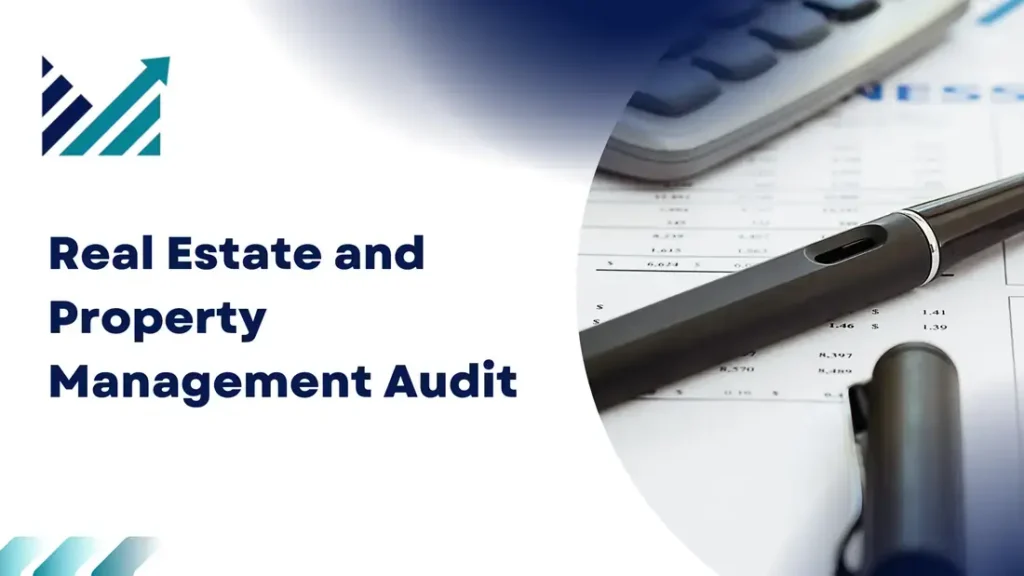
The real estate sector in the UAE stands as a pillar of the nation’s economy. It attracts local and international investors, developers, and tenants who rely on robust property management systems to safeguard their investments. With this scale and complexity comes the need for transparency, accountability, and strong financial oversight. That’s where real estate and property management audits come into play.
Auditing in real estate isn’t just about numbers on a balance sheet. It’s about ensuring assets are properly valued, financial transactions are transparent, and risks are carefully managed. In this article, we’ll explore why expert auditing services are critical for real estate companies, unique challenges in the UAE market, and what the auditing process typically involves. We’ll also address frequently asked questions about property audits to help real estate owners, investors, and managers understand how audits can protect and enhance their businesses.
Why Real Estate Companies Need Expert Auditing Services
Building trust and credibility
Real estate companies manage high-value assets and large sums of money, often on behalf of multiple stakeholders. Investors, lenders, and tenants all rely on the integrity of financial information. Independent audits enhance credibility by ensuring financial reports are fair and accurate.
Improving operational efficiency
An audit is more than a compliance exercise. Auditors often identify inefficiencies in property management processes, rent collection, maintenance budgeting, and vendor management. These insights help companies reduce costs and optimize performance.
Ensuring compliance with UAE regulations
The UAE has clear regulatory frameworks for real estate companies, especially those listed on exchanges or operating under specialized real estate laws in places like Dubai or Abu Dhabi. Auditing ensures compliance with International Financial Reporting Standards (IFRS) and local regulations, reducing the risk of fines and penalties.
Detecting and preventing fraud
Large property portfolios create opportunities for misuse of funds, unauthorized transactions, or inflated valuations. Auditors analyze transactions, contracts, and supporting documentation to detect anomalies and recommend stronger internal controls.
Supporting strategic decisions
Whether buying new property, refinancing, or selling part of a portfolio, accurate financial data is essential. Audited statements help decision-makers assess the true financial position and risks involved.
Challenges in Real Estate Auditing in the UAE
Diverse ownership structures
Real estate companies in the UAE may operate under different structures, such as freehold, leasehold, or joint ventures. Each structure has unique accounting treatments and disclosure requirements.
Rapid market changes
The UAE real estate market can change quickly due to economic trends, government initiatives, and global events. These shifts can affect property values, occupancy rates, and revenue projections, which auditors must evaluate carefully.
Complex valuation issues
Property valuation is a cornerstone of real estate audits. In the UAE, property prices can vary significantly by location, type, and market demand. Auditors must work with valuation experts to confirm whether management’s estimates reflect fair value.
Revenue recognition challenges
Real estate companies earn revenue from various sources, including rent, service charges, and sales of units. Recognizing this revenue correctly under IFRS, particularly when multiple performance obligations exist, requires judgment and technical expertise.
Dependence on property managers
Large real estate companies often outsource day-to-day management to third-party property managers. Auditors need to assess the reliability of data and reports provided by these managers.
Auditing Requirements and Processes for Real Estate Companies in the UAE
Financial audit
The financial audit is a statutory requirement for most real estate companies. It focuses on examining financial statements to ensure they present a true and fair view in accordance with applicable accounting standards.
Key areas of focus include:
- Valuation of investment properties
- Revenue recognition
- Lease accounting
- Related-party transactions
- Provisions and contingent liabilities
Internal audit
Internal audits help real estate companies improve internal controls, operational processes, and risk management. They often cover:
- Rent collection processes
- Vendor management and procurement
- Maintenance planning and budgeting
- Compliance with property laws and tenant regulations
Property management audit
This specialized audit focuses on the operational and financial performance of property management activities. It examines:
- Occupancy rates
- Lease agreements and renewals
- Service charge calculations
- Property maintenance schedules
Tax audit
Real estate companies in the UAE must comply with Value Added Tax (VAT) regulations and, in some cases, corporate tax laws. Tax audits ensure proper VAT treatment of rental income, service charges, and property sales.
The Typical Audit Process: Step by Step
- Understanding the business: Auditors begin by learning about the company’s property portfolio, management structure, and business model.
- Assessing risk: They identify areas with higher risks of material misstatement, such as valuation of assets or revenue recognition.
- Planning the audit: Based on identified risks, auditors develop an audit plan detailing procedures and timelines.
- Testing internal controls: Auditors evaluate whether the company’s internal controls effectively prevent errors or fraud.
- Substantive testing: This includes sampling transactions, confirming balances with external parties, and reviewing supporting documents.
- Reviewing estimates and valuations: Auditors assess whether management’s estimates, such as property valuations or provisions, are reasonable.
- Drafting the audit report: After completing the fieldwork, auditors prepare a report summarizing their findings and opinion on the financial statements.
- Final meeting: Auditors discuss key findings, areas for improvement, and recommendations with management and the board.
How Audits Add Value Beyond Compliance
Audits aren’t just about ticking boxes. They can:
- Identify underperforming assets or properties needing renovation
- Highlight gaps in rent collection processes
- Reveal inefficiencies in property maintenance budgeting
- Recommend better internal controls to reduce fraud risk
- Support negotiations with banks or investors by providing reliable financial data
For real estate investors and board members, audits provide peace of mind that the business is managed transparently and sustainably.
Frequently Asked Questions
What is the role of an auditor in the real estate industry?
Real estate auditors assess the accuracy and reliability of financial information, identify potential risks, and ensure compliance with accounting standards and regulations.
Why is property valuation important for real estate companies?
Accurate property valuations are crucial for financial reporting, investment decisions, and tax purposes. Overstated or understated values can distort profitability and mislead stakeholders.
How can auditing help real estate companies improve their financial performance?
Audits can identify inefficiencies, uncover fraud, and provide insights into areas for cost reduction and revenue growth.
How can auditing help real estate companies identify potential fraud and corruption?
Auditors can identify red flags, analyze financial transactions, and conduct investigations to uncover fraudulent activities.
What is the role of an auditor in assessing the value of real estate assets?
Auditors review property valuations, assess the accuracy of depreciation calculations, and ensure compliance with accounting standards.
How can auditing help real estate companies improve their cash flow management?
Auditors can analyze cash flow statements, identify inefficiencies, and recommend strategies to optimize cash flow.
What is the difference between a financial audit and a tax audit?
A financial audit focuses on verifying the fairness of financial statements according to accounting standards. A tax audit examines tax compliance, ensuring correct calculation and payment of taxes like VAT or corporate tax.
Conclusion
Real estate and property management audits are essential tools for transparency, compliance, and business improvement. In the UAE, where the real estate sector plays a significant economic role, robust auditing helps companies navigate complex regulations, market volatility, and valuation challenges.
Beyond compliance, audits can reveal operational weaknesses, prevent fraud, and support strategic growth. Whether you manage a single building or a diverse property portfolio, working with experienced auditors in UAE can protect your investment and enhance decision-making.
If you’re a real estate owner, investor, or manager in the UAE, consider auditing as an opportunity, not a burden. With the right approach, it becomes a strategic advantage that strengthens your reputation and long-term success.

